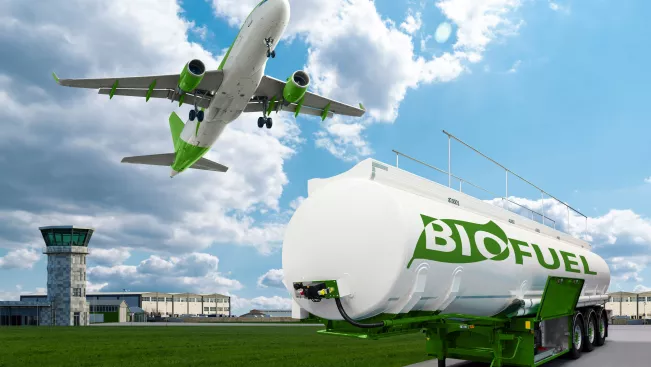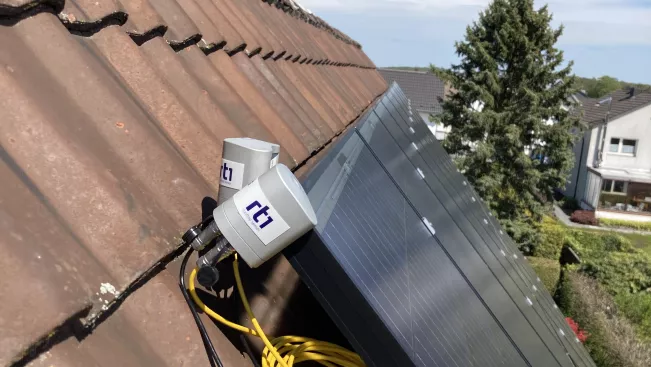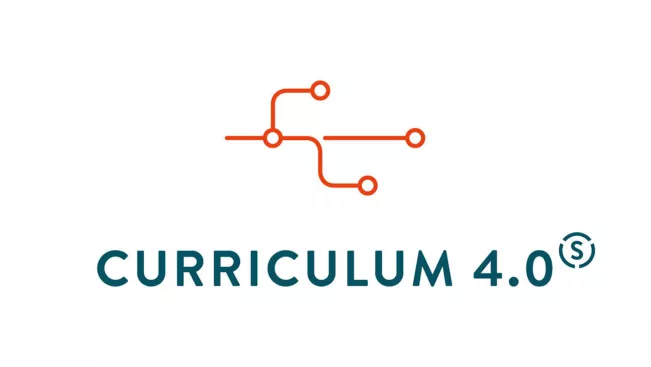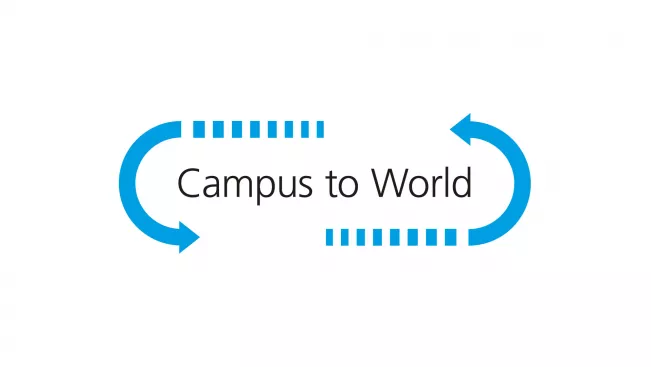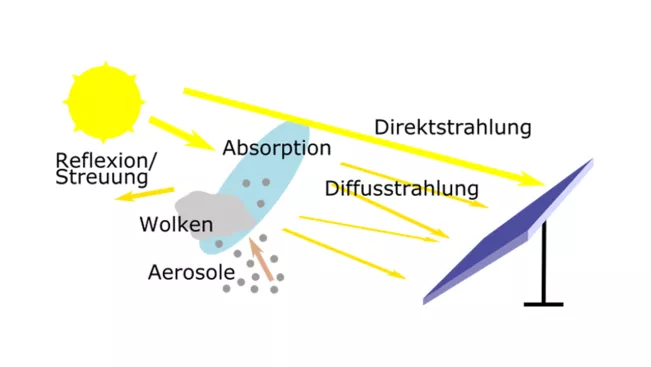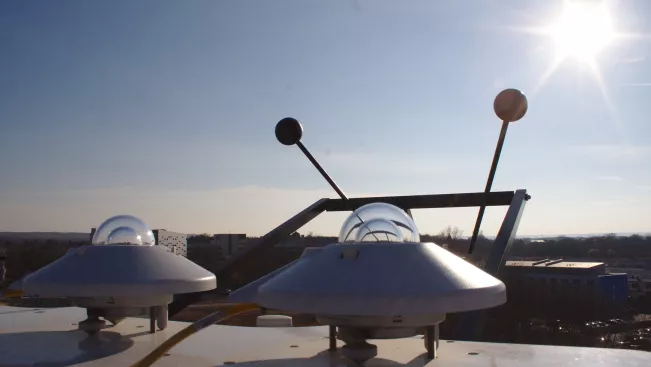International Centre for Sustainable Development (IZNE)

Prof. Dr Stefanie Meilinger
Professor for Sustainable Technologies, esp. Energy Efficiency and Renewable Energies/Director of the International Centre for Sustainable Development (IZNE)/Department Engineering and Communication (IWK)
Unit
Department of Engineering and Communication, Institute of Technology, Resource and Energy-efficient Engineering (TREE), International Centre for Sustainable Development (IZNE)
Research fields
- Sustainable Technologies, especially Renewable Energies and Energy Efficiency
Location
Sankt Augustin
Room
F 321
Address
Grantham-Allee 20
53757 Sankt Augustin
Telephone
+49 2241 865 718Profile
Field of teaching: Courses of Prof. Meilinger
Areas of research:
- Sustainable energy systems
- Sustainable Mobility
- Sustainability of technological transformation processes
Laboratory: Energy Meteorology Laboratory
Curriculum vitae
Professional activity:
Since 06/2013 International Center for Sustainable Development (IZNE), H-BRS
Professor for Sustainable Technologies,
especially renewable energies and energy efficiency
09/2012 – 05/2013 German Meteorological Service
Research assistant
02/2008 – 07/2012 Lufthansa Systems AG
Specialist and Product Manager for Environmental Flight Planning
01/2004 – 01/2008 Environmental Ressource Management GmbH (ERM)
Consultant Energy and Climate Protection
01/1997 – 01/2004 Max Planck Institute for Chemistry (Department of Air Chemistry)
Research assistant
04/1996 – 12/1996 Institute for Technology Assessment and Systems Analysis
Research assistant
School, study and doctorate:
01/1997 – 08/2000 Doctorate (Dr.sci.nat.) in environmental sciences
at the ETH Zurich in cooperation with the MPI for Chemistry in Mainz
Subject: „Heterogeneous Chemistry in the Tropopause Region: Impact of Aircraft Emissions
10/1989 – 11/1995 Study of Physics
Johannes Gutenberg University Mainz
11/1995 Diploma (very good)
Subject: „Non-Equilibrium Liquid Stratospheric Aerosol“
10/1990 – 04/1995 Study of Philosophy
Johannes Gutenberg University Mainz
08/1992 – 08/1993 Study at the Indiana University Bloomington, USA
05/1989 Baccalaureate
1980 - 1989 Marienschule Limburg/Lahn
1976 - 1980 Grund- und Hauptschule Oberbrechen
Memberships
- UNEP Life Cycle Initiative (Biogenic Carbon Project)
- VID (Richtlinienausschuss VDI 4635 Power-to-X)
- DMG (FA Energiemeteorologie)
- DPG (AG Energie)
- Forschungsnetzwerk Wasserstoff
- HyCologen
- PtX Hub
- SDSN Germany
- promet (Redaktionsaussschuss)
Research Projects
The GREATER project aims at supporting Rwandan country in the energy transition which is needed for sustaining its social and economic growth. In order to fill the energy gap and to enable equal access of the Rwandan population to electricity, widespread exploitation of renewable energy sources is planned. According to Governmental strategies for energy development, low-power, off-grid, distributed power generation will play a key role, this calling for both the training of a new generation of skilled professionals and for the widest diffusion of green awareness in the national community.
Project management at the H-BRS
Prof. Dr Marco Jung Prof. Dr Stefanie Meilinger Prof. Dr Tanja Clees Derk GonschorThe reTURN project partners are stepping up to revolutionize the transportation sector through sector coupling and to demonstrate a process for producing climate-friendly synthetic fuels at a viable cost.
Project management at the H-BRS
Prof. Dr Stefanie MeilingerIn this project, the Bonn-Rhein-Sieg University of Applied Sciences will analyse the availability of brewer's grains and the sustainability of procurement and processing. The design of a suitable electrochemical electrolysis cell will be carried out at Robert Gordon University.
Project management at the H-BRS
Prof. Dr Tanja Clees Prof. Dr Stefanie MeilingerThe KLUGER Transfer project stands for knowledge transfer in the fields of climate, environment and health research. The aim is to strengthen the transfer of knowledge from basic research at the Max Planck Institute for Chemistry (MPIC) via applied research at the International Center for Sustainable Development (IZNE) at Bonn-Rhein-Sieg University of Applied Sciences (H-BRS) to the public, politics and business. Different formats for targeted exchange are being tested in order to improve communication between science, society and politics.
Project management at the H-BRS
Prof. Dr Katja Bender Prof. Dr Martin Hamer Prof. Dr Stefanie Meilinger Prof. Dr Wiltrud TerlauThe aim of the project is the development of high-quality, lightweight structural components for the mobility sector, and the respective manufacturing technologies. To achieve this goal, a modular system for hybrid fiber composite lightweight components in the commercial vehicle sector is further developed and transferred to the rail vehicle sector. The lightweight components allow a significant weight reduction compared to the reference structures. Additionally, new manufacturing technologies are employed that require significantly lower energy input. As a result, a considerable amount of CO2 is saved both during production and throughout the service life phase.
Project management at the H-BRS
Prof. Dr Stefanie MeilingerIn Germany, photovoltaic (PV) systems are increasingly being combined with battery storage systems to enhance self-consumption and relieve the electricity grids of weather-related power peaks. Predictions of solar radiation and expected PV power generation are prerequisites for an optimal battery charging strategy. In the PV-Sp project, a feasibility study is conducted exploring whether a radiation map can be created based on the PV yields of PV battery systems, leading to an improvement of PV power predictions.
Project management at the H-BRS
Prof. Dr Stefanie MeilingerThe potentials and effects of digitalisation today encompass all areas of human and social activity. Universities are therefore responsible for enabling their students to develop competences that not only include the competent use of digital technologies, but also the ability to assess the potential and effects of digitisation in society and the world of work, to actively and reflexively shape digitisation processes and to keep pace with the rapid dynamics of change. In 2019/2020, the state of North Rhine-Westphalia developed the Curriculum 4.0.nrw funding line, which is intended to support the Hochschule Bonn-Rhein-Sieg in exploiting the opportunities of digital teaching, among other things. In the Department of Electrical Engineering, Mechanical Engineering and Technical Journalism, this funding line will be used to further develop the Master's programme in Sustainable Engineering Sciences, which addresses the funding line's thematic areas such as technical innovation and digitalisation.
Project management at the H-BRS
Prof. Dr Marco Jung"Dumsor" is the Ghanaian word for the frequent blackouts that happen on the country's electricity grid. Like many developing and emerging countries, Ghana suffers from frequent power cuts. On top of this, there is also the instability of the power grid. Both have a major impact on the health care services. Although electricity from photovoltaic systems could provide a solution, the photovoltaic (PV) market in Ghana remains relatively underdeveloped. This is where the EnerSHelf joint project steped in. Through dedicated research, research-practice collaboration in interdisciplinary teams, and on-the-ground implementation, the project paved the way for improved energy access and resilience within the healthcare sector, ultimately contributing to the well-being and prosperity of the Ghanaian population.
Project management at the H-BRS
Prof. Dr Stefanie Meilinger Prof. Dr Katja BenderThe institute TREE operates the TREE-Energy Lab (TRE3L) in the university's Center of Applied Research (ZAF) with it's industrial partners GKN Driveline and GKN Sinter Metals. In the three sub-labs Powder Fabrication-Lab, Mobility-Lab and Hydrogen-Lab the three partners work on innovative techniques in powder metallurgy and recent topics of environment friendly mobility and energy-efficiency. These labs are supported by a Simulation-Lab.
Project management at the H-BRS
Prof. Dr Alexander Asteroth Prof. Dr Tanja Clees Prof. Dr Dirk ReithBonn-Rhein-Sieg University of Applied Sciences has adapted its existing transfer instruments to the changing demands and requirements of business and needs of business, society and science and developed new suitable transfer mechanisms. The project was funded by the federal-state initiative "Innovative University".
Research project for the (further) development of innovative energy meteorological methods for satellite-based forecasts of irradiation and PV power at plant level.
Project management at the H-BRS
Prof. Dr Stefanie MeilingerThe development of sustainable electromobility is one of the social challenges our time, which is considered in the research project eTa. The energy efficiency of vehicles is addressed in aerodynamic projects and optimized operating strategies. In particular, non-classic vehicle concepts are in focus. Alternative mobility concepts based on non-fossil fuels need new supply structures. The optimized expansion of the loading infrastructure is therefore another issue. But even the best mobility concept is useless if it is not accepted by society and implemented by politics and business. Therefore, acceptance questions are a central element of eTa, which will be further developed. The following areas are addressed primarily by the need to reduce energy consumption: Efficiency of the vehicles Alternative mobility concepts Efficiency of mobility concepts Technical acceptance In particular, these are questions which arise only from the combined consideration of these subject areas and are usually not fully answered in classical manner. Examples of this are optimization of hybrid controls for muscle-electric hybrid light vehicles and study of the aerodynamics of ultralight vehicles where results of the classic wind tunnel tests often do not correspond to the results of the practice. Other topics that we are dealing with are predictive operational strategies for electric combustion hybrid vehicles and loss optimization, optimization of multi-stage placement of charging stations, acceptance of alternative mobility concepts.
Project management at the H-BRS
Prof. Dr Alexander AsterothWithin the framework of the NRW-Ghana Partnership and the funding program "NRW-Partnerships for the Promotion of Technical Universities in Ghana", the Ministry of Innovation, Economy and Research (MIWF) has been funding the university partnership project "Partnership for Applied Sciences - PASS" between the Bonn-Rhein-Sieg University of Applied Sciences (consortium leader), the Cologne University of Applied Sciences, the International University of Applied Sciences Bad Honnef and the two Ghanaian universities Kumasi Technical University and Cape Coast Technical University through the German Academic Exchange Service (DAAD) since 2017.
As part of the NRW-Ghana Partnership and the funding programme "NRW Partnerships for the Promotion of Technical Universities in Ghana", the Ministry of Innovation, Economics and Research (MIWF) has been funding the university partnership project "Partnership for Applied Sciences - PASS" between Hochschule Bonn-Rhein-Sieg University of Applied Sciences (consortium leader), Cologne University of Applied Sciences, Bad Honnef International University of Applied Sciences and the two Ghanaian universities Kumasi Technical University and Cape Coast Technical University through the German Academic Exchange Service (DAAD) since 2017. The project has a duration of four years.
The main objectives of the definition project "Energy Self-sufficiency for Health Facilities in Ghana" were to form a consortium of academic and corporate partners to prepare a draft proposal for a research and development (R&D) project aimed primarily at simultaneously improving access to health services and energy through the development and delivery of context-appropriate and sustainable energy solutions for health facilities in Ghana.
Project management at the H-BRS
Prof. Dr Katja Bender Prof. Dr Stefanie MeilingerGlobal energy demand is increasing year by year. On the one hand, this is driven by population growth and, on the other, by the increasing demand for technical equipment, travel/transport and consumer goods.
Project management at the H-BRS
Prof. Dr Stefanie MeilingerThe project is about the idea of a quick retrofit for conventional cars and buses, in order to reduce fuel consumption, related costs and CO2 emissions by using photovoltaic panels on the roof which are connected to the existing vehicle power supply network. This reduces the load on the alternator and leads to a reduction in fuel consumption. Tasks The main task of this project is to find out if the suggested PV system is applicable and profitable particularly with regard to sustainability: Theoretic calculations Experimental tests Analysing the results Impact estimations
Project management at the H-BRS
Prof. Dr Stefanie MeilingerAgainst the backdrop of the concretization of the 2030 Agenda adopted in September and the universally applicable Sustainable Development Goals (SDGs) anchored therein, solution strategies for the greater intensification of interdisciplinary cooperation between different scientific disciplines and the necessary internationalization of research will be developed in a dialogue between representatives of development and sustainability research, research policy and research funding institutions.
Project management at the H-BRS
Prof. Dr Katja BenderIn order to save energy, ergonomic indoor climate control adapted to people's personal preferences is a good way. For this purpose, weather forecast data can be used, personal climate control data from the past, preferences and simulation evaluation data can be included and evaluated. A room model will be developed and simulated that evaluates such data and suggests individualized room climate control.
Project management at the H-BRS
Prof. Dr Stefanie MeilingerThe project is based on the idea of a quick retrofit for conventional cars and buses, in order to reduce fuel consumption, related costs and CO2 emissions by using photovoltaic panels on the roof which are connected to the existing vehicle power supply network. This reduces the load on the alternator and leads to a reduction in fuel consumption. Tasks The main task of this project is to find out if the suggested PV system is fitting sustainability criteria, if it is applicable, effective and profitable.
Project management at the H-BRS
Prof. Dr Stefanie MeilingerDevelopment of a flasher for photovoltaics with capabilities to control intensity, spectral energy density distribution, and angle of incidence for direct site- and time-based yield measurement in the laboratory.
Project management at the H-BRS
Prof. Dr Stefanie Meilinger Prof. Dr Dieter Franke (Professor im Ruhestand)The goal of this project was to develop a strategy in order to extend the infrastructure of car charging stations in Bonn and the Rhein-Sieg-Kreis. Based on goals set by the government and information about the distribution of the car density in the area of interest, scenarios for the extension between 2016 and 2020 have been identified. In order to achieve these goals, the number of charging stations has to be raised successively from 256 (in 2016) to a number of 935 in 2020. Therefore, a grid map for the distribution of charging stations for electronic cars and bicycles had to be created. Also so called "points of interest" (POIs) (tourist attractions, leisure time facilities, etc.) as well as park-and-ride stations have been taken into account. All those options have been ranked according to their priority and their individual traffic data. The current distribution of charging stations has been investigated beforehand. With the help of an algorithm, the best positions and distributions for charging stations have been determined. Though, further analysis is necessary in order to bring these proposals into practise. Therefore, a guildeline has been developed and tested in a workshop for the locations "Königswinter" and "Bonn City Centre".
Project management at the H-BRS
Prof. Dr Stefanie MeilingerPublications
Publications can be found via the link to the publication list below.

